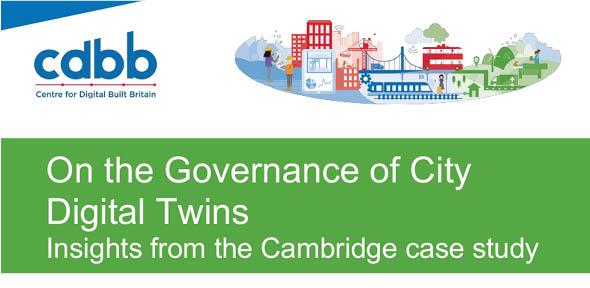
Submitted by Angela Walters on Sun, 28/07/2019 - 00:00
Our July Monthly Paper is a working paper by Dr Timea Nochta, Nicole Badstuber and Dr Noura Wahby looking at city digital twins.
On the Governance of City Digital Twins – Insights from the Cambridge case study
Introduction: The project investigates how currently existing governance systems (and their structural and cultural characteristics) influence what is considered feasible, appropriate and desirable in implementing digital solutions in cities. We use urban modelling, specifically the concept of city digital twins (CDTs), as a case study to analyse how multi-scale and multi-stakeholder decision-making environments, conditioned by distinct social contexts, impact city-wide technology development and deployment. City digital twins are conceptualised as next-generation urban modelling tools which make use of ubiquitous data produced through various digitalisation trends in the built environment and beyond. CDTs are realistic digital representations of physical city systems, assets and processes providing digital simulation and management environments to aid decision-making. Defining the concept of CDTs is still a work-in-progress (Bolton, Enzer and Schooling, 2018) – this process needs further refinement, input from a broader set of disciplines and critical thinking. The project contributes to generating knowledge that is crucial to unlocking the potential of CDTs i delivering social, economic and environmental outcomes that meet citizens’ needs and also respond to contemporary urban challenges. Such challenges include – but are not limited to – climate change mitigation and adaptation, urban sprawl, spatial inequality, air quality and strain on urban infrastructures and services. We contend that CDTs will not offer straightforward solutions to either of these. However, they provide a chance to look at challenges afresh, and to establish new governance structures and mechanisms which are better equipped to cope with or tackle them. CDTs therefore must be designed and implemented with an explicit aim of mitigating against structural failures in contemporary urban societies which produce (and re-produce) city challenges.
This record's DOI: https://doi.org/10.17863/CAM.41083
This record's URL: https://www.repository.cam.ac.uk/handle/1810/293984
